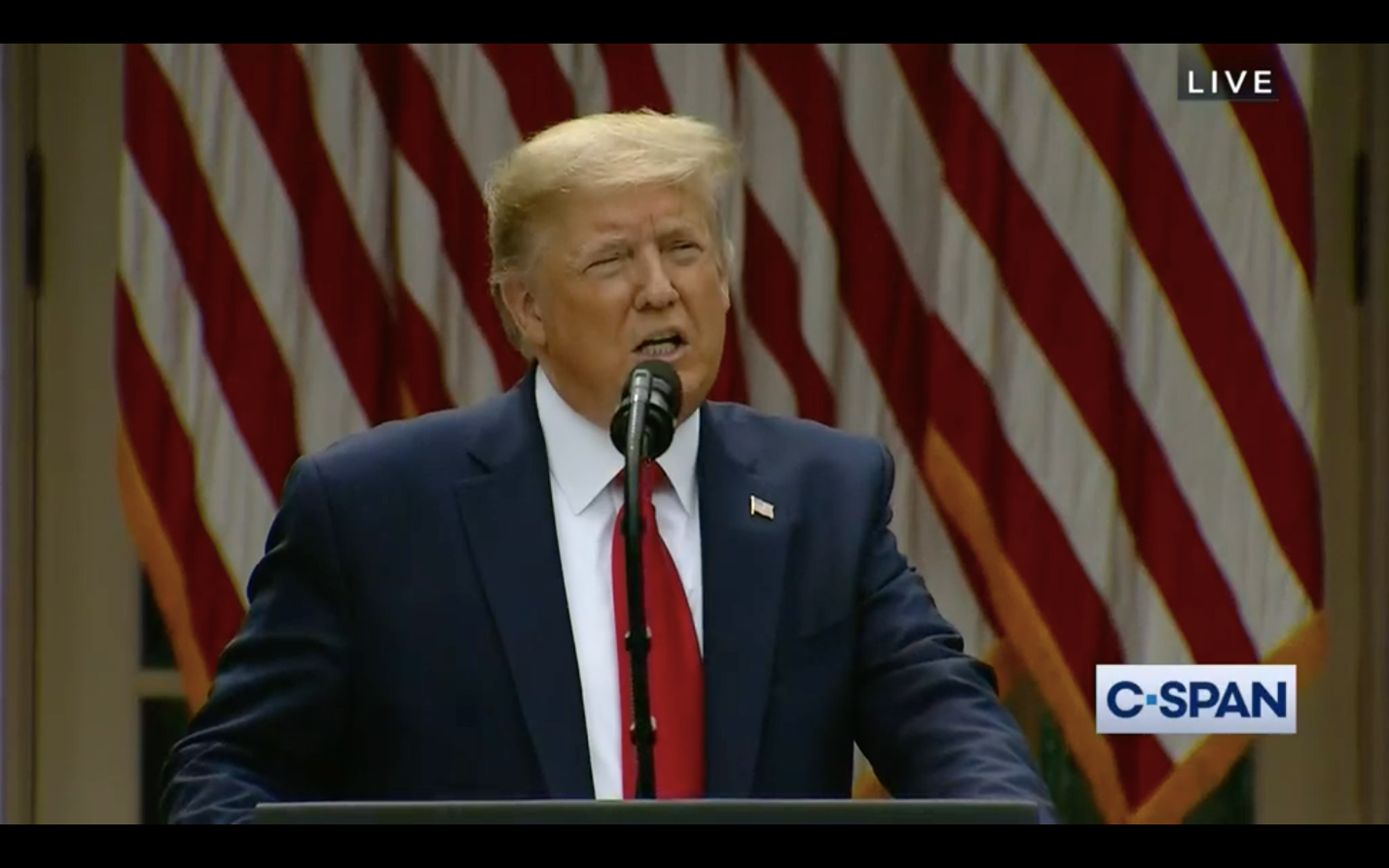By Jaelyn Morgan, Intern for the Department of International Affairs, Concerned Women for America
Wall Street Journal could not have phrased it any better, “What good is a global health agency that won’t tell the truth about a pandemic?”[1] Yet, controversy still surrounds the recent announcement made by President Trump to defund the World Health Organization (WHO) due to its untimely and China-biased response to COVID-19. Some say the reaction is extreme. Others claim WHO is corrupted beyond repair. The question remains: is this policy worth supporting? Or is the U.S. withdrawing from an organization at the time the world needs it the most?
The World Health Organization is a branch of the United Nations responsible for communicating internationally relevant medical information to its Member States all across the globe. In light of their failure to properly convey information about the Coronavirus, it is no wonder the Trump Administration decided to write it off. On April 15, 2020, the White House released a fact sheet containing specific accusations of misconduct against WHO, criticizing the organization for its slow response to the Coronavirus and calling it to engage in total structural reform to ensure transparency, data sharing, accountability, and impartiality.[2]
On May 29, 2020, President Trump officially announced that the U.S. would terminate its relationship with WHO and redirect U.S. annual funding of $450 million dollars to “other worldwide and deserving, urgent, global public health needs.”[3] Justification for this measure was China’s “total control over World Health Organization,” and consequent action to “[pressure] the World Health Organization to mislead the world when the [Coronavirus] was first discovered by Chinese authorities.” The ensuing weeks resulted in a mixed reaction from both sides of the political aisle. However, this wakeup call toward WHO might not only have been necessary, but inevitable.
The political nature of a global entity makes it extremely difficult, if not impossible, to make any “neutral” decisions. Even WHO’s objectively “good” goal of “building a better, healthier future for people all over the world,”[4] does not make it a completely neutral entity which promotes what is best for humankind. Why? Each nation represented in WHO comes from a complex socio-cultural background with their own worldview and priorities. These worldviews inevitably clash due to significant variations in what each perceives as real, good, or best.
The World Health Organization is biased on many of its policies and recommendations. For example, a central aspect of WHO’s reproductive health initiative is the promotion and facilitation of abortion services. This objective is cleverly disguised under rhetoric advocating for “women’s rights” on the grounds of “realizing a women’s right to decide the spacing and timing of her children.”[5] Yet, this failure toward neutrality is exposed in its complete disregard for the pro-life argument against abortion on the grounds that it violates the human rights of an unborn child. WHO’s Reproductive Health Strategy explicitly states that “urgent actions are needed … to the extent allowed by law, provision of safe abortion services … [and] providing abortion services at primary health care level.”[6] Again, their progressive healthcare agenda is revealed in the claim that “access to safe, legal abortion is a critical reproductive healthcare service.”[7]
In addition, WHO’s explicitly progressive goal of advancing abortion across the globe demonstrates its profound lack of understanding and respect for national sovereignty. Their one-sided agenda reveals bias against nations who are culturally pro-life, as their publications demonstrate that WHO views such nations as oppressive entities which must provide “safe abortion” services to show that they support women.
For the United States, defunding the World Health Organization and using the funds to help other like-minded entities instead is a good decision. If an organization such as WHO cannot be neutral, there is no sense in funding it, especially since it has become clear that WHO has been acquiescing to the Chinese Communist Party at the expense of the health and well-being of other nations. The United States does, and hopefully always will, stand for democracy, freedom, and national sovereignty. This can be accomplished by withdrawing from WHO and determining as a nation which like-minded organizations we ought to support amid this worldwide pandemic.
[1] The Editorial board, “How WHO Really Feels About China,” Wall Street Journal, June 3, 2020, https://www.wsj.com/articles/how-who-really-feels-about-china-11591226923.
[2] “President Donald J. Trump Is Demanding Accountability From the World Health Organization,” Fact Sheets: Healthcare, The White House, April 15, 2020, https://www.whitehouse.gov/briefings-statements/president-donald-j-trump-demanding-accountability-world-health-organization/.
[3] “Remarks by President Trump on Actions Against China,” Remarks: National Security & Defense, May 30, 2020, https://www.whitehouse.gov/briefings-statements/remarks-president-trump-actions-china/.
[4] “About WHO,” World Health Organization, https://www.who.int/about.
[5] “Abortion” Overview, World Health Organization, https://www.who.int/health-topics/abortion#tab=tab_1.
[6] World Health Organization, Department of Reproductive Health and Research, “Reproductive health strategy to accelerate progress towards the attainment of international development goals and targets,” May, 2004, https://apps.who.int/iris/bitstream/handle/10665/68754/WHO_RHR_04.8.pdf.
[7] Bearak, Jonathan Marc, Anna Popinchalk, Gilda Sedgh, et al., “Pregnancies, abortions, and pregnancy intentions: a protocol for modeling and reporting global, regional and country estimates,” Reproductive Health 16, no. 36, (March 2019), https://doi.org/10.1186/s12978-019-0682-0.


